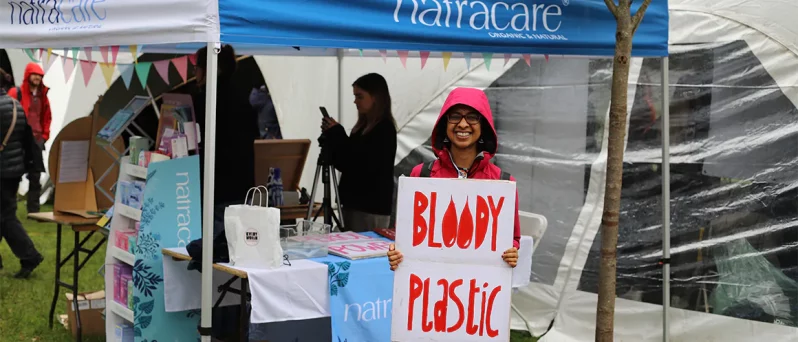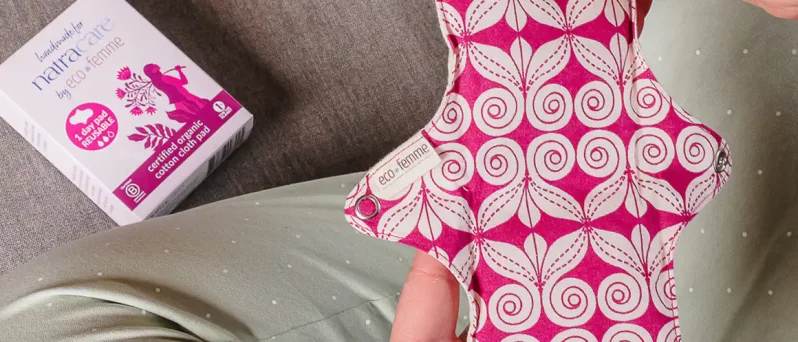Momentum for the Rename Dont Shame campaign, conducted by sustainable personal care brand Natracare, is reaching new heights. The petition urges supermarkets to stop calling period products ‘feminine hygiene’, and has the backing of 18,024 signatures. A year later, the campaign has inspired many UK retailers to make their wording more inclusive.
The topical conversation stormed social media, saying it was “about time” retailers commit to tackling the stigma around periods by changing their signposting from ‘feminine hygiene’ or ‘sanitary products’, to ‘period products’ or ‘menstrual products’.
On Twitter, many using the campaign hashtag commented:
@immimaycontent: “Long overdue! We need to tackle this harmful and false language around periods and we need more inclusion. When I was 16, I remember being so embarrassed to talk about my period at school and even at home or with friends.”
@women4earth: “Avoiding terms like ‘period’ and ‘menstruation’, as though they are shameful words, upholds the very real stigma around this natural bodily function. This stigma affects people’s quality of life, every day… Language is powerful!”
@BigScone99: “Supermarkets should stop using the phrase ‘feminine hygiene’ and use the more accurate ‘menstrual products’. The former excludes trans men and non-binary people. It also masks the purpose of the products, enforcing the idea that menstruation is shameful #RenameDontShame’”
Trailblazing Retailers
Woolworths in Australia was the first large retailer to rebrand its feminine hygiene section to period care in a national effort to beat the stigma surrounding periods. UK retailers like Abel and Cole and Ethical Superstore were already ahead of the curve with their inclusive signposting on their websites, whilst sustainable online stores like Big Green Smile and Good Club have decided to change their wording as a result of the campaign.
“Words are powerful and using more inclusive titles, such as ‘Period Products’, can make a huge difference in tackling shame and inequality that’s sometimes felt around periods. We’re proud to be part of the growing list of retailers making this change and looking forward to seeing others following suit, contributing to a more inclusive shopping experience,” says Hannah Dowd, digital marketing manager at Good Club.
Emma Hager, social media and brand marketing manager at Ethical Superstore adds: “The idea that periods are unhygienic and something only women experience is damaging, so if you’re a retailer who hasn’t changed their signposting yet, we would encourage you to do so and help end this stigma once and for all.”
Georgina Holland, Content & Creative Lead at Abel & Cole says: “At Abel & Cole, we understand that language has power. Which is why we consciously use ‘period care’ across our website to be as inclusive as possible to all gender identities. We’re proud to support the work of Natracare as champions of sustainable period products that put people and the planet first.”
Jessica Gitsham, Natracare’s sales and marketing manager says: “It’s amazing to see so many people supporting the #RenameDontShame campaign so far. Reaching almost 18,000 signatures proves just how important this issue is and how it impacts so many people with periods. Thank you to the retailers who are supporting the campaign by making these small changes online. However, we still have a way to go to make lasting change with physical supermarkets. So, we urge you to write to your local supermarket, share and sign the petition, and keep the conversation going.”
For more information, please visit the Rename Don’t Shame petition page.
Learn more about the history of the term feminine hygiene.
Notes to editors
Natracare is the first company in the world to provide plastic-free, certified organic cotton tampons and totally chlorine-free sanitary pads and panty liners. Natracare products are biodegradable and can even be composted. Susie Hewson created the brand in 1989 in response to the growing danger to human health and the environment from dioxin pollution in the pulping industries with the chlorine bleaching of paper products.








